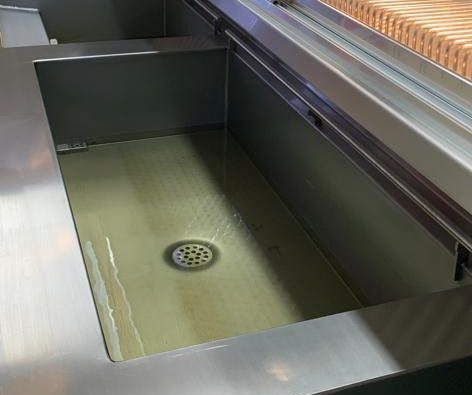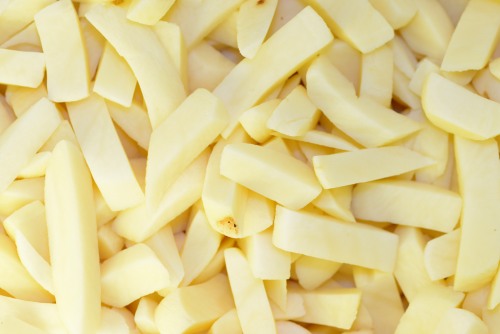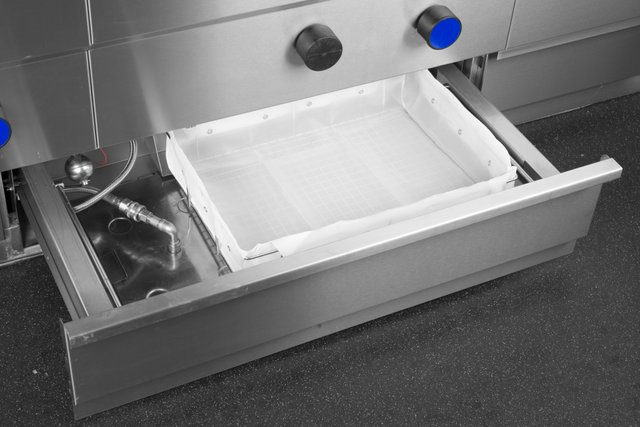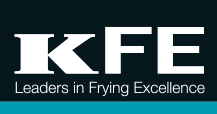KFE School of Frying Excellence trainer Gordon Hillan offers his top tips to help manage your fats and oils and prolong their usability

Transferring oil – Rather than dumping oil after you have used it in your fish pan, extend its use by transferring it to your blanching pan and then into your finishing pan. This is easily done using the inbuilt filtration on a Kiremko range. Some friers will transfer it the other way – the chip pan into the fish pan – but I would always recommend fresh oil in your fish pan for two reasons. Firstly, heat accelerates the deterioration process in oils and fat, so if you are frying fish at 185°C, you are close to your smoke point already and you are deteriorating that oil pretty quickly. If you then move that oil to your blanching pan, which is set to 140°C, it gets a chance to convalesce for while before it hits the last leg of its journey, which is going to be your finishing pan at about 175-180°C.
The second reason is that as oil gets older, it gets thicker, absorbs into food quicker and takes longer to drain out. So if you’re trying to drain old, thick oil from a battered piece of fish, you’re going to have to allow more time before serving that piece of fish to your customer than you would for it to drain from your chips, especially if they’ve been resting in the chip box. Also, the fact you’ve got used oil in your chip pan gives chips a nice golden colour and even helps them cook better because the oil absorbs quicker.
Use a potato preparation formula – Starch and water break down oil very quickly, therefore using a potato preparation formula, which will remove both of these from your chips before putting them into your oil, will help prolong the life of the oil.
Filtering – This is crucial because any carbon particles left in the oil will very quickly break it down. If there’s a fight between oil and carbon, carbon will win every time. Kiremko ranges can come with built-in filtration and with the opportunity to upgrade to three-stage filtration, which includes an additional Superpad that takes out all the minute carbon particles and impurities that can get left behind. I recommend shops filter twice a day, plus an interim filter if a shop has had a particularly busy afternoon. For shops that shut between 2pm and 4pm, I would always filter at about 3pm because any small batter scraps or bits of food left in the oil during that time will go black, even while the oil is resting.


Skim regularly – This will remove batter scraps from the oil which, if left, can quickly turn to carbon and start breaking down your oil.
Clean your pans regularly – While they are empty, clean the sides and bottom of your pans to make sure they are free from carbon before you put your fresh oil back in.
Make sure there is no cleaning residue left – Check your pans are thoroughly cleaned and any utensils rinsed as cleaning agents will deteriorate your oil too.
Avoid overheating your oil – This will help prevent it from reaching its smoke point, which is where the oil goes through a chemical change and it starts to break down.
For more tips on oil management and to see it in action, book a training session at the KFE School of Frying Excellence where our award-winning friers can demonstrate on the latest Kiremko frying range. Call 01778 380 448 or e-mail sales@kfeltd.co.uk

